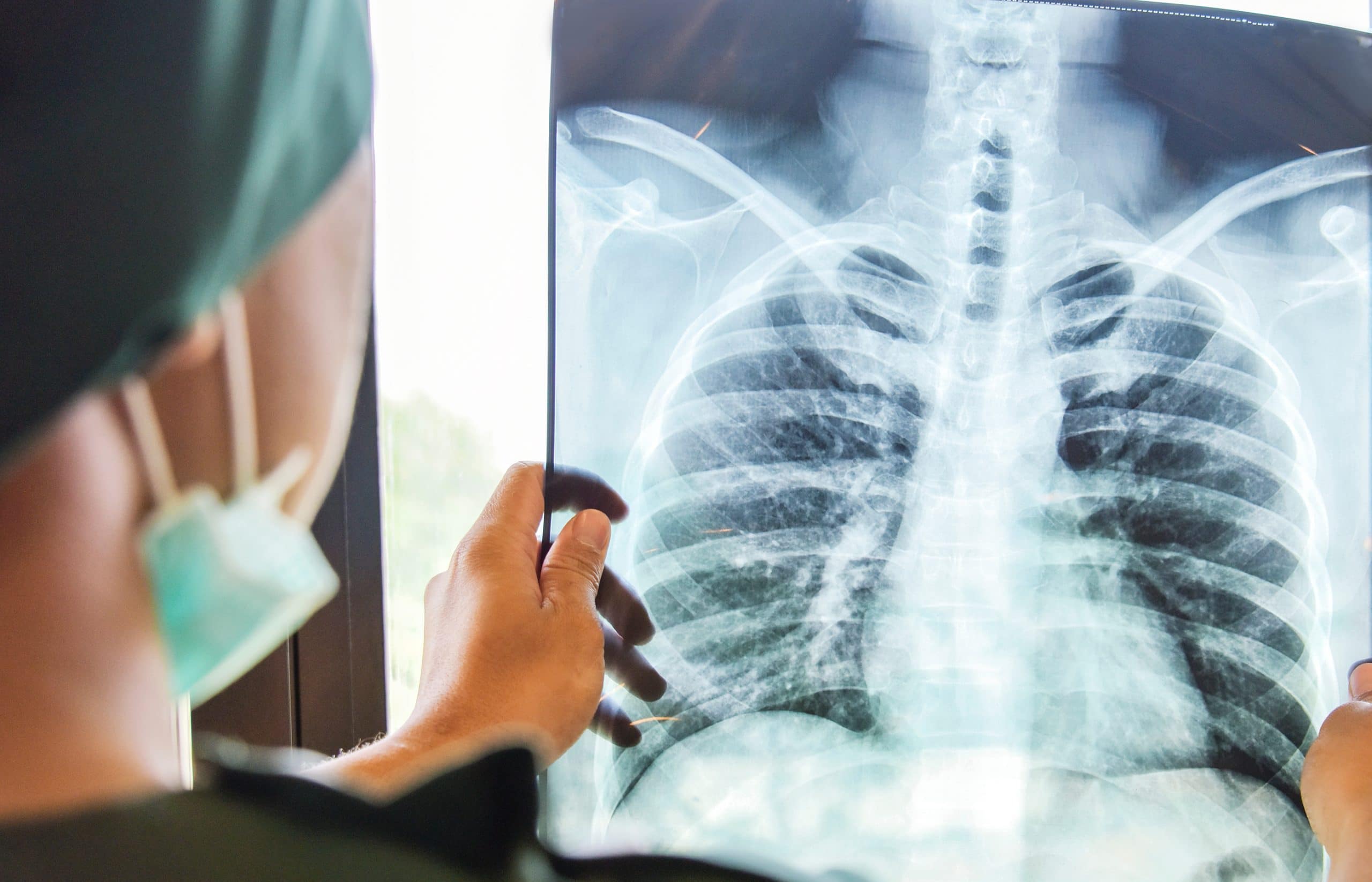Bronchial Carcinoids
Bronchial carcinoids (BCs) are rare, slow-growing lung tumors that are often misdiagnosed due to their symptoms' similarities to common respiratory conditions. Treatment for the disease usually depends on tumor aggressiveness, with surgery commonly used to treat it in its early stages. In more advanced cases, healthcare providers use chemotherapy, targeted therapies, and emerging treatments such as PRRT to help manage patients' symptoms.

What Are Bronchial Carcinoids?
Bronchial carcinoids are a slow-growing, rare type of lung cancer. It’s often diagnosed in patients experiencing symptoms of wheezing, persistent coughing, and coughing up blood. The disease represents less than 2% of all lung cancer cases, and symptoms are often attributed to other conditions, causing delays in many diagnoses. Due to the rarity of the disease, those suffering usually face a challenging journey from limited research. For healthcare providers, staying informed on the latest developments will aid in developing effective treatment plans for your patients.
Bronchial carcinoids have two main subtypes: typical bronchial carcinoids (TBCs) and atypical bronchial carcinoids (ABCs). TBCs are commonly treated with surgical resection, but atypical BCs require additional treatments such as chemotherapy. Healthcare providers can differentiate bronchial carcinoid tumors from other types of lung cancers based on their genetic makeup.
Common mutations in those suffering from BCs are found in the MEN1, DAXX, and ATRX genes. These genetic mutations are commonly observed in TBCs and ABCs. They can help healthcare providers determine how the tumor will respond to certain treatments. To better understand your recent diagnosis, we’ve gathered the most recent developments to help you navigate your journey.
Bronchial Carcinoids Molecular and Genetic Insights
Understanding the genetic makeup of bronchial carcinoids compared to other neuroendocrine carcinomas is essential to help patients and healthcare providers better understand treatment plans and disease outcomes. Bronchial carcinoids commonly have mutations in the MEN1 gene, which slows their progression. For those suffering from BCs, understanding the effects of genetic mutations can reassure their tumors are less likely to spread compared to other forms of lung cancer.
Other mutations commonly seen in BCs include mutations in DAXX and ATRX. These genetic changes stunt DNA replication, affecting tumor growth. Loss of function in ATRX can promote tumor development over time, but it is not associated with chromosomal instability like more aggressive cancers. For those suffering, this means bronchial carcinoids are usually more stable than other tumors, resulting in a better prognosis.
Symptoms and Diagnosis of Bronchial Carcinoids
For those navigating a recent bronchial carcinoid diagnosis, understanding the symptoms is crucial for early detection of the disease. Early detection plays a significant role in improving survival rates—studies show that patients diagnosed at an early stage have a 5-year survival rate of over 90%. In the early stages, symptoms are often mistaken for common respiratory conditions, such as persistent cough, wheezing, and chest pains. Due to the slow progression of the disease, severe symptoms often don’t appear until the tumor has grown significantly.
Healthcare providers use imaging tests such as CT scans or MRIs to identify lung abnormalities. These tests help determine the size and exact location of the tumor. At the same time, additional imaging, like PET scans, can assess whether the disease has metastasized to other parts of the body. Once a mass is identified, a biopsy is performed to confirm the diagnosis. For example, persistent symptoms can lead to a doctor’s visit which may reveal a tumor early, allowing for timely treatment. Biopsies confirm the diagnosis and allow healthcare providers to develop effective, personalized treatment plans.
Treatment Options for Carcinoids
Surgical procedures are the primary and most effective treatment option for bronchial carcinoid patients. Depending on the tumor location and size, healthcare providers remove tumors through a lobectomy, the removal of a lung lobe, or segmentectomy, the removal of a smaller portion of the lung. An advantage of surgery is in patients with early stages of BC, who usually experience higher long-term results than those with more aggressive forms of lung cancer. However, non-surgical treatments are used if the tumor is inoperable due to the size or metastasis.
Chemotherapy and radiation therapy are generally less effective than surgery, so for patients with metastatic bronchial carcinoids, healthcare providers use targeted therapies to stunt tumor growth, such as everolimus for bronchial carcinoids. Everolimus is a drug used to inhibit mTOR, and studies show it can help the progression of advanced atypical bronchial carcinoids (ABCs). However, target therapies, such as somatostatin analogs like octreotide and lanreotide, remain the gold standard for managing symptoms such as diarrhea and wheezing.
Peptide Receptor Radionuclide Therapy (PRRT)
Another innovative option, Peptide Receptor Radionuclide Therapy (PRRT), delivers targeted radiation to tumor cells. The NETTER-1 trial found that PRRT significantly improved progression-free survival and response rates compared to high-dose octreotide LAR for neuroendocrine tumors.
Comparing treatment outcomes helps patients and healthcare providers choose the most effective path. Surgical resection often provides curative potential, while targeted therapies like Everolimus and PRRT offer hope for managing advanced cases, reinforcing the importance of personalized treatment plans.
Advanced Lung Cancer Treatments and Future Directions
Research continues to develop as researchers explore additional therapies, such as PRRT for BCs, somatostatin analogues, antiangiogenic agents, and immunotherapy. Both therapies have shown potential during early clinical trials, but further research is needed to confirm their efficacy for treating the disease. Future treatments for BCs bring hope to those affected and their families that one day, there will be a cure.
Antiangiogenic Agents and Immunotherapy
In addition, emerging therapies such as antiangiogenic agents and immunotherapy have the potential to treat bronchial carcinoids. Antiangiogenic therapies block the blood supply to tumors and have shown promising results during pre-clinic studies. Immunotherapies are another area of developing research that offers hope to those suffering from bronchial carcinoids.
Get Help with Treatment Management
If you or a loved one has been diagnosed with bronchial carcinoids, you are not alone. The Lung Cancer Center offers the resources and support you need to manage your disease proactively. Our patient advocates can connect you with a specialist experienced in neuroendocrine tumors, help coordinate your care, and guide you through the process of diagnostic testing, including imaging and biopsy.
Taking these steps can help you take control of your health and ensure you receive the most effective care available. Contact us today to discuss your options, connect with medical facilities, or explore clinical trials so you get the best treatment options for your individual situation.


